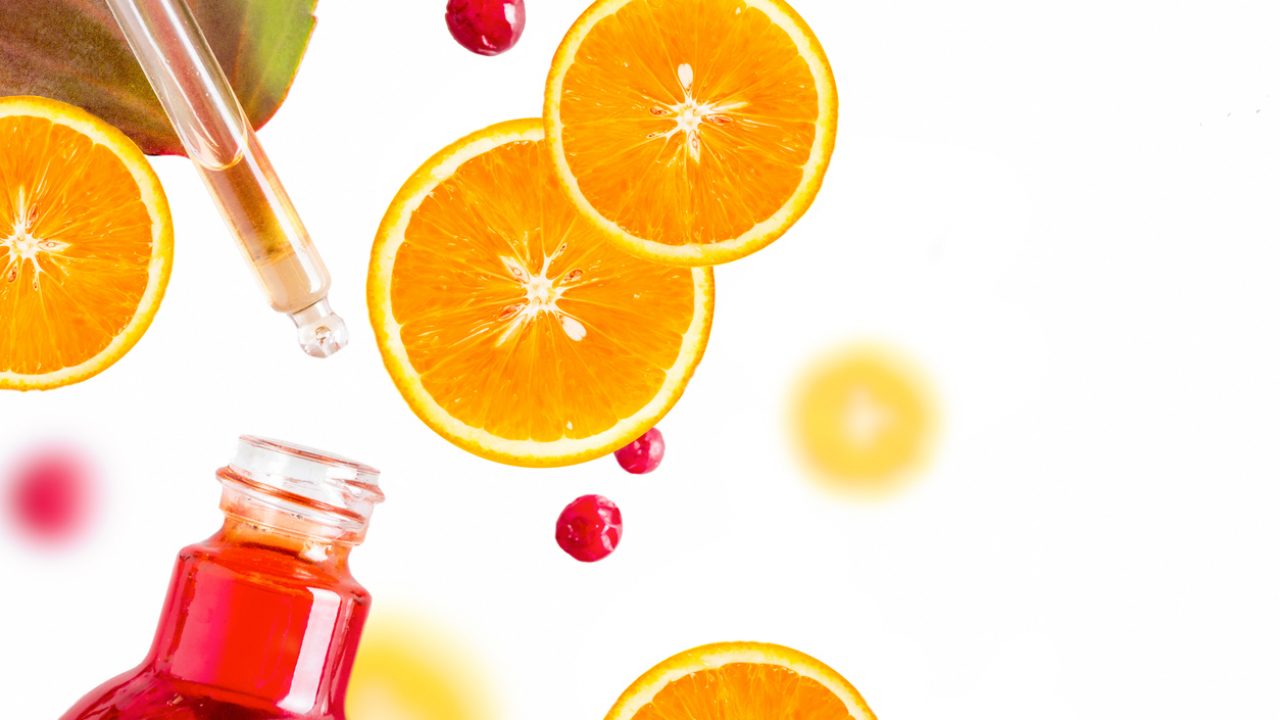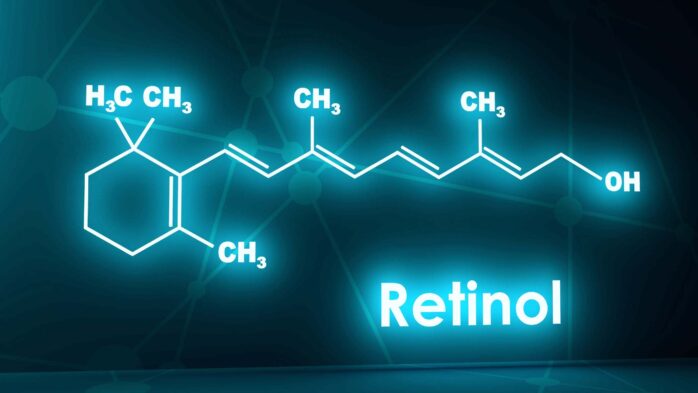
Below we explain the science of serums – from what they do to which is best for your skin types and needs
JUMP TO SECTION
Click the links below to jump to the relevant section:
After just a single search for face serums online brings up a confusing barrage of options.
Whether it’s anti-pollution, brightening, anti-ageing, moisturising, or stress-reducing, there doesn’t seem to be much a facial serum can’t do.
And with prices for such “miracle” products ranging from a few pounds to an incredible £650. SIX HUNDRED AND FIFTY POUNDS, it’s a minefield.
For that latter price, we’d expect someone to come and apply it for us!
To avoid you overspending or choosing the wrong serum for your skin type, below we’ve explained the science of serums.
We’ve explained what serums do, what ingredients you should be looking out for, and which is the best serum on the market.
We’ve highlighted a number of our favourite niacinamide, vitamin C and vitamin E serums but if you’re looking for a more comprehensive list, check out our best face serum list.
Tip: If you’re not sure of your skin type, take a look at our What skin type do I have? guide.
While cleansers, toners and the best moisturisers are designed to help clean and hydrate the upper layers of the skin, a serum works below the surface to target the layers you can’t see. Serums are typically concentrated liquids, as opposed to creams, that are quickly absorbed into your skin and tend to be applied via a dropper if oil-based, or a pump if water-based.
Two of the most common ingredients listed in serums are retinol and niacinamide.
Retinol is another name for vitamin A, and it is marketed as a solution to fine lines and wrinkles, whereas niacinamide is a form of vitamin B3 found in green vegetables, meat, fish, and eggs that can help additionally tackle dehydration and pigmentation.
You can read more in our Retinol for beginners guide, and our What is niacinamide and what does it do to your skin? explainer.
According to Dr Abigail Waldman, serums are especially good for people who are worried about signs of ageing. The concentrated nature of serums works well in delivering anti-ageing ingredients, like antioxidants, that will help slow down DNA damage in your skin which is what causes your skin to slump, sag and look sallow or dull.
This is why most serums are targeted at the face, but you can also buy serums for your neck and décolletage – the skin on your chest and in between your boobs. Many people concentrate on using skincare products to reduce and prevent signs of ageing on their face and around their eyes, in particular, but brands such as PRAI also sell serums to stop your neck from sagging or your skin becoming crêpey.
READ NEXT: How to get rid of age spots fast
 Shutterstock
Shutterstock WANT TO KNOW MORE? The truth about the acids in your skincare
In terms of a routine, serums are used on clean skin – so after you’ve cleansed, exfoliated and toned the skin – but before you apply your moisturiser. This gives the serum chance to soak into the skin when it’s fresh and clear before a layer of moisturiser is added which can prevent the serum from working as effectively, and may even stop it from penetrating the lower layers of your skin.
When it comes to combining different ingredients across your cleanser, toner, moisturiser and serum – especially when they are acidic – be careful to avoid irritation. This is where serums that contain a mixture of active ingredients are good because you know they work together well. It’s also good practice to apply serum to a small area of the skin first and wait to see if there is any irritation before using it on your face.
What’s more, introducing retinol into a skincare routine can sometimes cause irritation or dry skin, so it’s a good idea to start using it every few days and increase its use gradually.
Serums that contain niacinamide help treat wrinkles, dehydration, oily skin and pigmentation. Suitable for acne and eczema-prone skin.
£14.99 | Buy now
Why we love it: Face Theory is all made in the UK – in Sheffield – and the brand now ships worldwide. Face Theory is on a mission to make the very best clean, unfrgranced skincare products it can – and to deliver them at an affordable price point.
With active ingredients inside this serum, such as
You can use this serum on its own or underneath your moisturiser but because it contains 10% of niacinamide and azelaic, it is recommended you use just a small amount. You can read more about the benefits of introducing new products in our guide to skin purging.
This is suitable for oily or combination skin with enlarged pores as well as sensitive and mature skin.
£5 | Buy now
Why we love it: We love The Ordinary here at mamabella and it always has a solution for whatever you need for your skin – so much so you can see the full range in our best The Ordinary products for all your skincare concerns guide.
Its Niacinamide and Zinc bestseller is an oil-free serum that contains 10% of niacinamide with zinc salt to balance visible sebum.
All reviews have said this has been a gamechanger for people with excess sebum and large pores; they have even noticed a natural glow to the skin too. Users have noticed that their skin has also been brighter and even. All for a fiver! You can read what we thought of it in our The Ordinary Niacinamide serum review.
READ NEXT: The best The Ordinary products for all skin concerns
Vitamin C – also known as ascorbic acid – helps get rid of age spots and reverse damage caused by sunlight while stimulating the growth of collagen.
£54 | Buy now
Why we love it: This serum has 12.5% of Vitamin C power and we love it because we’ve seen our dark spots reduced, and our skin feels plump and smooth after use. This isn’t the typical serum that has a watery/gel consistency, this serum feels more like a light paste.
Given the relatively high concentration of Vitamin C, it does look slightly orange and has a gritty feel to it. And once applied to your face you will feel a slight tingling sensation but that subsides quickly and didn’t cause us any irritation.
This serum additionally contains hyaluronic acid to restore moisture.
READ NEXT: What does vitamin C do for your skin?
£27.99 | Buy now
Why we love it: If you need a quick fix, this 10ml Vitamin C serum is used for 10 days only, and within those 10 days we guarantee you will see brighter and smoother skin.
This serum contains 15% of pure Vitamin C, it also contains Vitamin E and hyaluronic acid to nourish and hydrate your skin.
£140 | Buy now
Why we love it: SkinCeuticals is known as advanced skincare, back by science and it was the first brand to run a clinical study looking into the effectiveness of Vitamin C on the skin. It’s no surprise, then, that its C E Ferulic serum is a best seller.
It is a powerful antioxidant and SkinCeuticals claims it can deliver eight times environmental protection, all the while helping your skin free from radical damage, improve fine lines, wrinkles and loss of firmness. You can read more about free radicals in our guide to the best foods for skin.
Yes, the price tag is hard to swallow but having ingredients like 15% pure Vitamin C, 1% Vitamin E and 0.5% of ferulic acid doesn’t come cheap.
We found this serum helped to tackle visible anti-ageing, like our fine lines and wrinkles while making your skin firm, bright and glowing.
Buy now from Look Fantastic

Abigail is a leading science journalist writing about space, sustainability, technology and culture. She is author of The Art of Urban Astronomy, a must-have guide to the night sky that guides you through the seasons and learn about the brightest stars and constellations, the myths and legends of astronomy and how to identify star clusters and galaxies.
